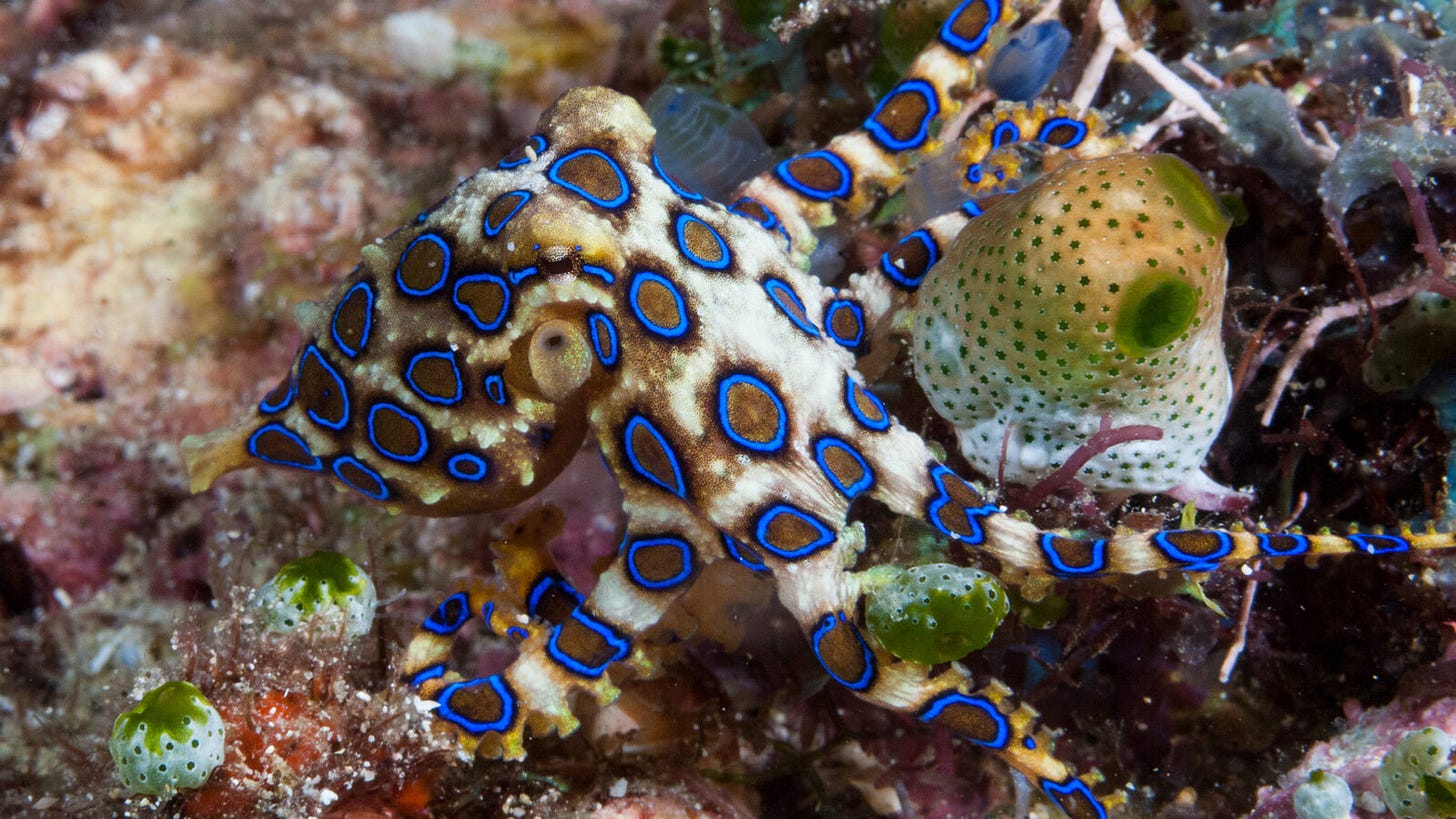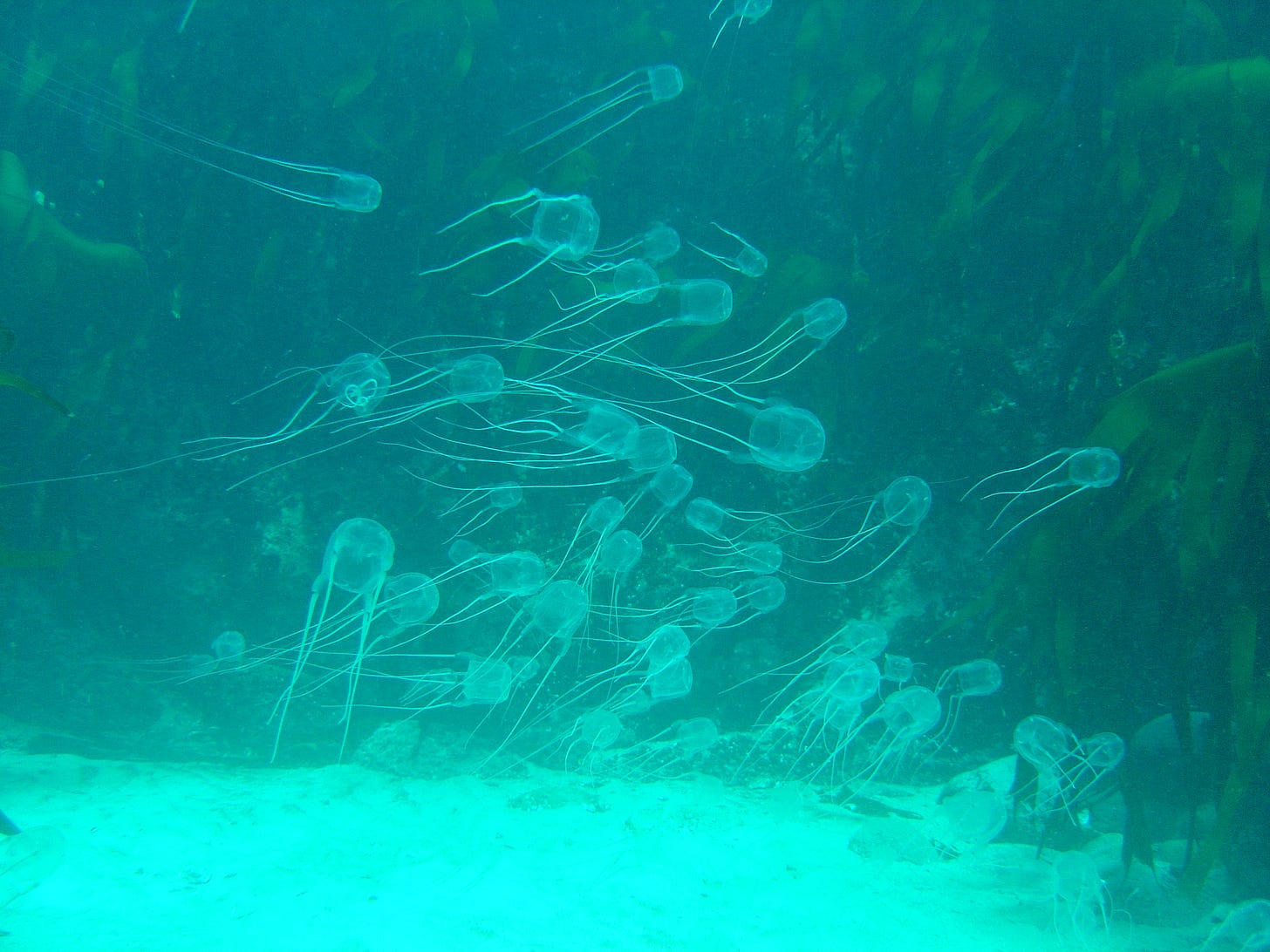Bonus fun facts on poisonous animals (not birds!!!)
I had so much fun writing the previous article on poisonous birds, I thought it would be cool to add some fun facts on other, poisonous, animals!
The Box Jellyfish, the Blue-ringed Octopus, even the freaking tiny and unassuming Cone Snail: many animals are regarded as the most poisonous in the world.

What do you think the world’s most poisonous animal is?
The answer is:
A toxic boss!!!!!!!!
They are super poisonous!!
I’m kidding! (But not really. If you do somehow find yourself in a toxic work environment, I sincerely hope you find the courage to leave this abusive situation, and work for someone else that respects and values you! You are a kind, smart and important person and you deserve kindness in your life.)
Anyway, we previously learnt about poisonous birds, like the Spur-winged Goose, and the Hooded Pitohui.
One of the world’s most poisonous animals: the Blue-ringed Octopus!
These creatures are capable of producing one of the strongest toxins in the world, the tetrodotoxin. This is a strong, fast-acting toxin that paralyses the target by blocking the nerves from transmitting messages. This toxin can totally fatal - for both fishies in the ocean and the unsuspecting human beach-goer.

However, the number of actual fatalities linked to the Blue-ringed Octopus is actually super low. There have only been 3 known deaths (two in Australia, and one in Singapore!) and many more people have been bitten but survived.
The scariest thing? The paralysis that overcomes the victim is only to their voluntary muscles; victims actually remain fully conscious.
Death usually only occurs because the muscles begin to fail and the victim can no longer breath. Essentially, they suffocate to death - which I hear is a nasty way to go. (I wouldn’t know, though, because I’ve never died before.)
If you ever find yourself in a scenario where you get bitten by a Blue-ringed Octopus, you’ll survive if someone finds it within their kind soul to perform mouth to mouth resuscitation until you fully recover.
And, Blue-ringed Octopuses are not known to be aggressive! They try to avoid confrontation by flattening their bodies. You are only likely to get bitten if you step on them or provoke them. And I guess if you do do that, you kind of deserve the octopus bite…
Anyway, there’s really nothing to be afraid of. Deaths due to a Blue-ringed Octopus are extremely rare because, unlike spiders and snakes, humans have very limited contact with this poisonous sucker!

That’s all for today’s article on non-bird fun facts. Thanks for reading, and I hope you learnt something new today!
